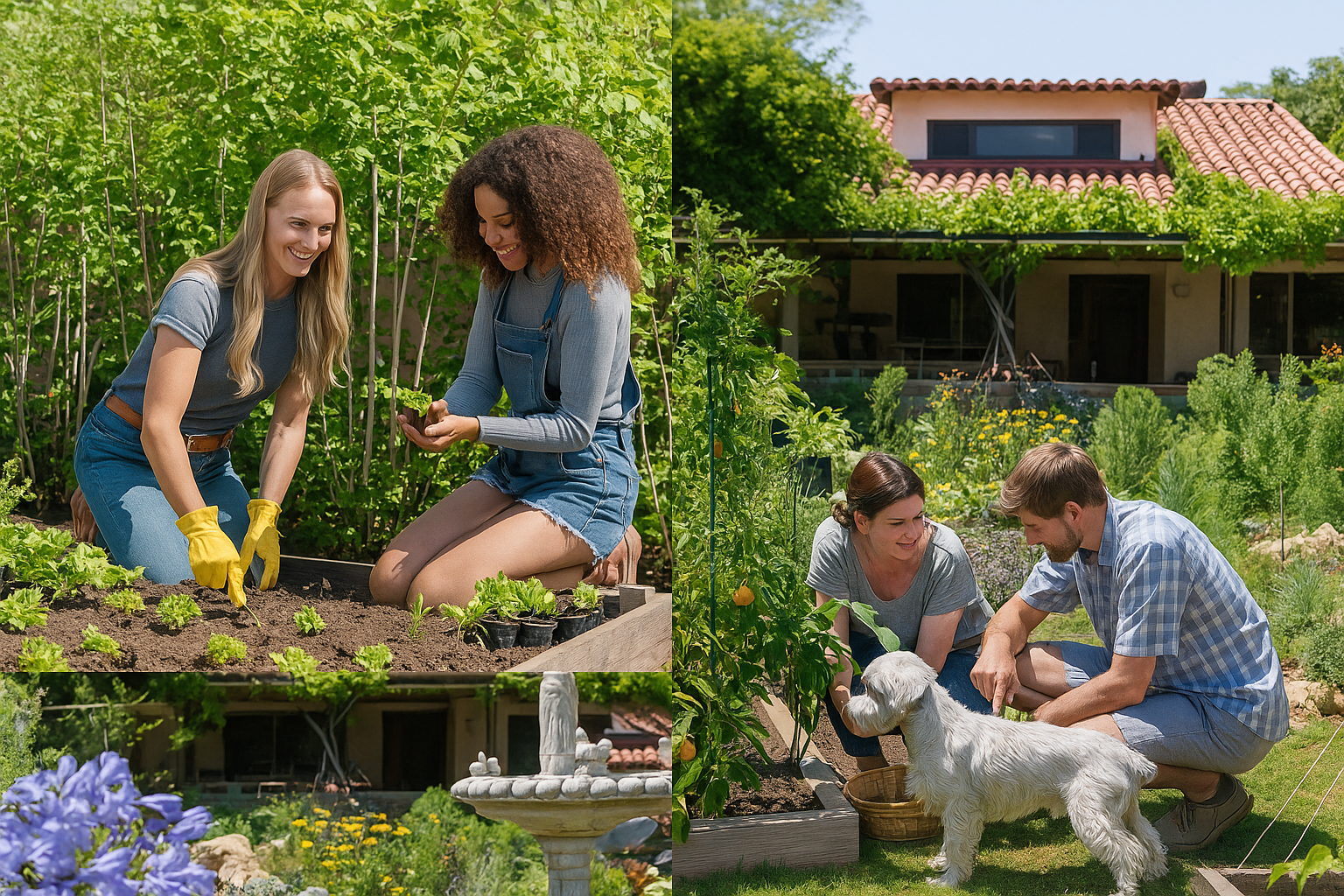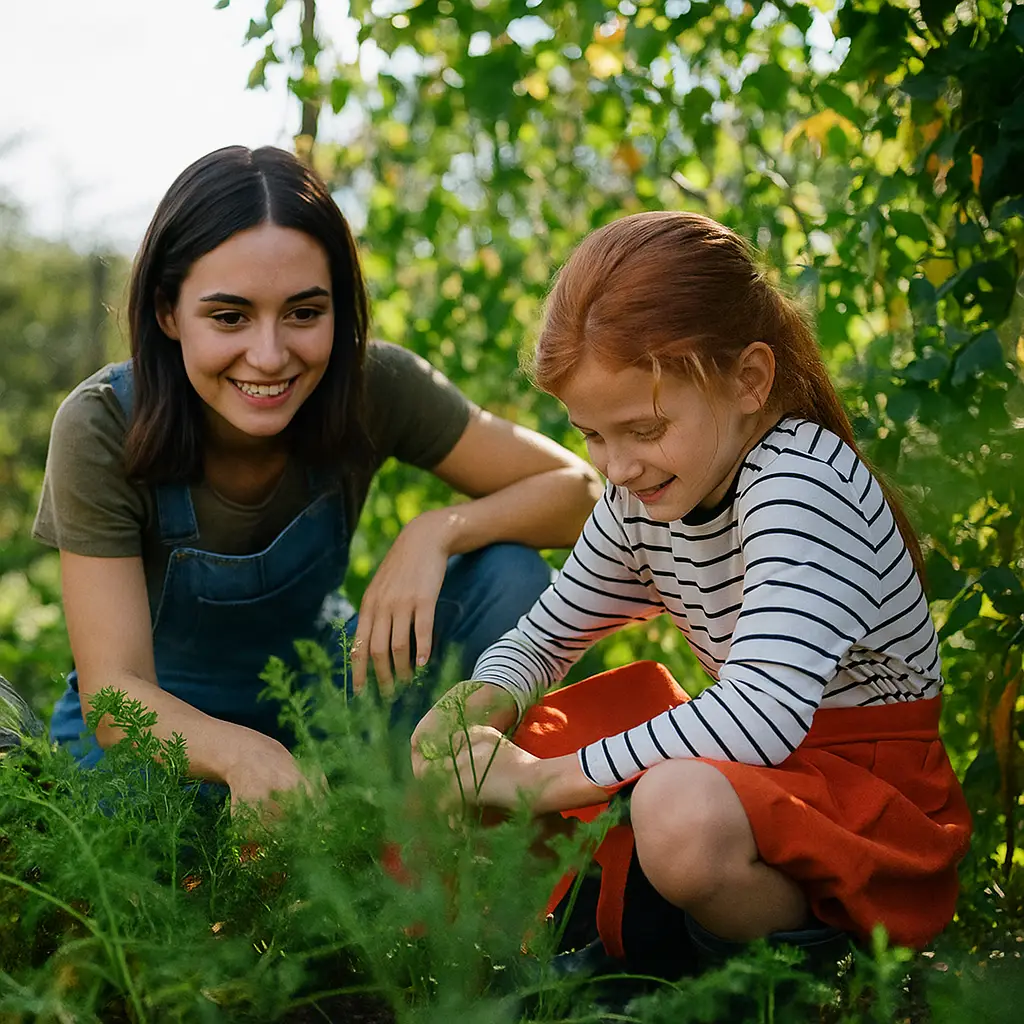Why We Need Sustainable Insect Control in Our Gardens
Gardening connects us with nature. As we dig, plant, water, and care for our green spaces, we also take on the role of protector. But what happens when insects threaten that space? Many gardeners turn to chemical sprays without considering their long-term effects. These products can harm bees, butterflies, birds, and the soil, too.
At Wasps-R-Us, we know how easy it is to reach for the bug spray when faced with pests. But we’ve learned that the best way to care for our gardens is to work with nature, not against it. Mother Nature has had millions of years to come up with solutions far more elegant than anything in a bottle.
With that in mind, we’ve put together some of our top sustainable insect control ideas. These tips help keep your garden thriving without harming other wildlife or the planet.
Start with Healthy Soil
Healthy soil is like a solid foundation for a house. When the soil in your garden is full of the right nutrients, moisture, and microbes, plants grow stronger and resist pests naturally.
To build healthy soil, make your compost or buy good organic compost from a trusted source. Add compost to your beds a few times a year. This enriches the soil with natural elements that help plant roots develop well.
Mulching also plays a big part. A thick layer of straw, shredded leaves, or bark keeps the soil soft and moist. It also gives good insects a place to hide and hunt for pests.
Attract the Right Insects
Not all insects are pests. Ladybirds, lacewings, parasitic wasps, and ground beetles are all “good bugs” because they hunt the bad ones. Inviting them into your garden makes pest control easier and more natural.
We like to grow flowering herbs and plants like fennel, dill, alyssum, marigolds, and yarrow. These attract helpful insects which lay their eggs nearby. Their larvae and young feed on aphids and caterpillars before they can cause serious damage.
Creating tiny “bug hotels” out of bamboo sticks or wood with holes drilled in can also attract beneficial insects like solitary bees, which are key pollinators.
Use Physical Barriers
Some of the simplest ways to keep pests away involve no chemicals at all. Physical barriers like row covers, netting, and collars around seedlings protect your plants from hungry insects.
Thin floating row covers let in sunlight and water while keeping insects out. We’ve used these to protect brassicas from cabbage butterflies and carrots from carrot root flies.
Sticky traps, copper tape (for slugs and snails) and plant collars can also stop pests before they get to your crops. These methods are harmless to bees and birds, and they don’t pollute your soil.
Try Companion Planting
Companion planting is a clever method of growing plants that help each other. Some plants release smells that confuse or repel insects, while others attract pest-eating insects or protect weaker plants.
For example, we plant marigolds near tomatoes and beans to keep aphids and whiteflies away. We also grow basil with peppers and tomatoes because it repels flies and mosquitoes. Nasturtiums around cucumbers draw aphids away from the main crop.
This method takes a bit of planning at first, but once you learn which plants like each other, it becomes second nature.
Use Natural Repellents and Sprays
If pests get too bold, try sprays made from natural ingredients. These can take down pests without hurting other creatures.
We’ve made sprays at home using garlic, chilli, and soap mixed with water. A few drops of peppermint or neem oil in water can also work well. Neem oil particularly controls aphids, whitefly and scale insects without affecting bees when used at the right time.
Always spray early in the morning or in the evening to avoid harming friendly insects like bees, which visit flowers during the day.
Keep Your Garden Tidy but Wild
That might sound like a contradiction, but we’ve found that a garden thrives when it’s a little messy. Cutting back every plant and cleaning up every fallen leaf removes the homes and food for insects and animals that help your garden.
Allowing a small pile of leaves, a few hollow stems and a sheltered corner can be very welcoming to helpful creatures like hedgehogs, frogs, and toads. These garden heroes love to snack on slugs and insects that eat your plants.
Still, it’s good to weed regularly and remove any sick or infested plants early. That way, you avoid spreading disease while keeping welcoming spaces for helpful wildlife.
Deal with Wasps the Right Way
Wasps can be helpful in the garden by eating caterpillars and flies, but they can sometimes create nests close to your home or spaces where kids and pets play. That’s when a balance of safety and nature is needed.
Instead of using strong poisons that may harm more than wasps, trust professionals who respect the environment. At Wasps-R-Us, we take great care to remove nests safely. Our approach fits well with eco-friendly gardening principles.
You can also visit our website for more information and expert help on wasp control. We always think about the best interests of both humans and local wildlife.

Avoid Harmful Pesticides
Many chemical pesticides sold in garden centres affect more than just the pests. They kill beneficial insects and leave behind toxins that enter your soil and water.
There are even some that remain in plants, which means you could end up eating traces on your fruit or vegetables.
Always read every label, and avoid products that contain ingredients like neonicotinoids or synthetic pyrethroids. Stick to organic-approved options.
When possible, don’t spray at all. Instead, use the techniques we’ve shared, like encouraging natural predators, using barriers, and keeping plants strong and healthy with compost and water.
FAQs
What’s the biggest benefit of sustainable pest control?
It creates a healthy garden that supports birds, bees, and butterflies with fewer chemicals and healthier crops.
Can I control pests without pesticides?
Yes. It takes a mix of methods like natural predators, plant choice, timing, and observation.
How do I make my insect spray at home?
A mix of 1 litre of water, a teaspoon of washing-up soap, crushed garlic or a chopped chilli can be quite effective. Let it sit overnight, strain, and spray on leaves.
Are wasps bad for gardens?
Wasps eat many garden pests. But if they build a nest too close to people, it’s safer to have it professionally removed. Visit Wasp Nest Removal Services for advice and assistance.
How can I attract helpful insects naturally?
Grow a mix of flowering plants like marigolds, nasturtiums, borage, and herbs. Use logs, sticks, and bug hotels to shelter them.
Let’s Grow Greener Together
Creating a sustainable garden is more than keeping pests away. It’s about growing alongside nature, working with it instead of forcing it to bend to our will.
By building healthy soil, welcoming the right bugs, avoiding harsh chemicals, and calling in experts like Wasps-R-Us when needed, we make our gardens happier, safer spaces for everyone.
Whether your patch is big or small, your actions matter. Start with one or two tips and grow from there. Before long, you’ll be enjoying fresh fruit, buzzing bees, and a real connection with the world around you.
Need help with wasps or want expert advice on keeping your garden naturally pest-free? Head over to Wasp Nest Removal Services and let us help you protect your patch the green way.



 Blog
Blog